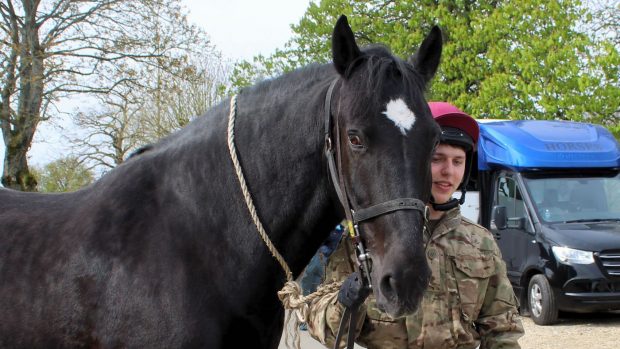A new campaign is an attempt to prevent a “disaster” for equine welfare, which could be the case if we do not act.
The British Horse Society (BHS) and British Equine Veterinary Association (BEVA) have joined forces on the Think Before you Worm project, launched at the 2022 BEVA congress (7-10 September).
The aim is to educate owners, keepers and yard managers on the vital importance of following an evidence-based, testing-led, worming programme developed with the vet.
“This comes as the risk of dewormer resistance continues to threaten the equine industry; a state that occurs when a proportion of the worms inside horses are no longer killed by the dewormer,” a BHS spokesman said.
“The outdated practice of giving dewormers at regular intervals without testing first has resulted in worms becoming resistant to many of the drugs that we use. The aim of ‘Think Before You Worm’ is to help slow resistance by urging more equestrians to reduce a horse’s unnecessary exposure to dewormers by using testing-led programmes.”
H&H has reported on the fact wormer resistance could lead to a “colic Armageddon”, as well as issues such as pastures on which horses can no longer be grazed, as is already the case in some areas for other grazing species.
BHS welfare campaigns officer Gabby Madders said: “If we continuously deworm our horses without testing first, the number of resistant worms present will increase. This means worms on a horse’s pasture will become resistant to dewormers and no longer respond to treatment.
“Only five types of chemical drugs are available to treat horses in the UK for worms and there is now evidence of resistance to all of these chemicals. Without action, we could reach a point in the future where all worms are resistant to the dewormers available, which will be disastrous for equine welfare.
“We’re delighted to be working with BEVA to minimise the threat of resistance and to support horse owners, carers and yard managers with the development of a tailored, testing-led deworming plan that prioritises the welfare of their horses and eliminates any unnecessary treatment.”
BEVA president elect David Rendle said the association is just as pleased to be working with the BHS on this issue.
“Horse owners are becoming increasingly aware of the urgency with which we need to tackle dewormer resistance and find sustainable testing-led strategies of control, which minimise potential harm both to horses and to the environment.
“The BHS and BEVA guidelines are an excellent reference, and we would urge every horse and yard owner to work with their local veterinary surgeon to develop testing-led programmes that work best for them. Vets want to help.”
Risks associated with wormer resistance include the fact this increases dependence on other drugs, meaning a “vicious circle”, with more dependence and fewer options. If parasites become resistant to all drugs – and there has been resistance recorded to all classes – horses are at risk of serious illness, such as colic, which could be fatal.
You might also be interested in:
‘We’re on a slippery slope, and what’s at the bottom is not an appealing picture’

Large numbers of horses will die if we do not change the way we worm

Stark warning of more colic deaths unless owners act to avoid worming ‘Armageddon’

‘A serious and imminent threat to the equine industry’: owners called to action

Horse & Hound’s essential guide to worms and deworming

Subscribe to Horse & Hound this spring for great savings
Horse & Hound magazine, out every Thursday, is packed with all the latest news and reports, as well as interviews, specials, nostalgia, vet and training advice. Find how you can enjoy the magazine delivered to your door every week, plus options to upgrade your subscription to access our online service that brings you breaking news and reports as well as other benefits.




